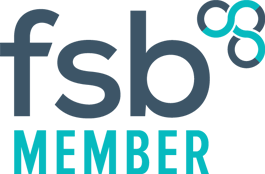In today’s digital world, social media is no longer optional for small businesses—it’s a necessity. Whether you run a start-up, a local shop, or a service-based business, platforms like Instagram and Facebook provide an invaluable way to connect with your audience, grow brand awareness, and drive sales. But simply having an account isn’t enough; success comes from using social media strategically. It’s about more than just posting—it’s about engaging, building relationships, and creating a presence that keeps your audience interested and invested in your brand.
Why Social Media Matters for Small Businesses
Unlike traditional marketing methods, social media allows small businesses to reach potential customers without the need for a massive advertising budget. With billions of users active daily, these platforms offer an affordable way to market your products and services while fostering a sense of community around your brand. Done correctly, social media can:
- Increase brand awareness
- Build credibility and trust
- Drive website traffic and sales
- Provide real-time customer service
- Allow businesses to gather insights about their audience
By taking the time to develop a smart social media strategy, small businesses can compete with larger brands and establish themselves as industry leaders.
Engagement Over Broadcasting
One of the biggest mistakes businesses make on social media is using it as a one-way broadcasting tool rather than an interactive platform. The key to a successful social media presence isn’t just about pushing out content—it’s about starting conversations.
When businesses engage with their audience, they build stronger relationships and increase loyalty. This could mean responding to comments, sharing user-generated content, or using interactive features like polls and Q&As. Engagement also signals to the platform’s algorithm that your content is valuable, making it more likely to be shown to a wider audience.
Each social media platform serves a different purpose. Instagram, for example, is ideal for visual storytelling, while Facebook is great for creating deeper connections through long-form posts, groups, and interactive discussions. Understanding the strengths of each platform helps businesses tailor their approach for maximum impact.
Learning from Competitors
One of the best ways to refine your social media strategy is to observe how other successful businesses in your industry operate. This doesn’t mean copying them, but rather identifying what they do well and finding ways to improve upon it. Ask yourself:
- What type of content gets the most engagement?
- How do they interact with their audience?
- What gaps exist in their strategy that you can capitalise on?
Following competitors, studying their content, and reading through their audience’s comments can provide invaluable insights into what works and what doesn’t. The goal is to take these learnings and apply them in a way that remains authentic to your brand.
Tailoring Your Approach to Each Platform
Social media isn’t a one-size-fits-all tool, and each platform has its unique advantages. Understanding where your target audience spends their time will help you focus your efforts effectively.
- Instagram: Best for visual content, such as product photos, behind-the-scenes videos, and brand storytelling.
- Facebook: Ideal for building communities through groups, live videos, and in-depth posts.
- LinkedIn: Great for networking, B2B marketing, and thought leadership.
- TikTok: Excellent for creative, short-form video content that has the potential to go viral.
Rather than trying to be everywhere at once, it’s more effective to focus on one or two key platforms where your audience is most active and tailor your content accordingly.
Consistency is Key
A common reason businesses struggle with social media is inconsistency. Posting once in a while won’t be enough to build a loyal following. The key is to stay active, provide value, and maintain a consistent posting schedule.
- Create a content calendar to plan posts in advance.
- Mix up your content—combine images, videos, carousels, and text-based posts.
- Use scheduling tools to automate posts and free up time for engagement.
- Repurpose content across different platforms to maximise reach.
Consistency not only keeps your brand top of mind, but it also signals reliability to your audience, helping to establish trust.
Measuring Success and Adjusting Your Strategy
Social media marketing is not about guesswork—it requires tracking and analysing results. Most platforms provide insights that allow businesses to see what’s working and what’s not. Key metrics to track include:
- Engagement rates (likes, comments, shares, and saves)
- Follower growth
- Click-through rates on links
- Conversion rates (how many people take action after seeing your content)
Regularly reviewing these metrics helps refine your strategy over time. If a particular type of post isn’t resonating, tweak your approach. If a specific campaign performs well, find ways to build on that success.
Why Social Media is Worth the Effort
Some small business owners hesitate to invest time in social media because they don’t see immediate results. But the truth is, social media is a long-term game. The businesses that thrive are the ones that stay visible, relevant, and connected. It’s an investment in your brand’s future.
Social media offers an affordable, high-impact way to build credibility, increase brand awareness, and drive real business growth. By showing up consistently, engaging with your audience, and using data to guide your strategy, you can create a powerful online presence that sets your business apart.
Final Thoughts
If you’re not leveraging social media for your small business, you’re missing out on a huge opportunity. The good news? It’s never too late to start. Focus on engaging, providing value, and staying consistent. Over time, the effort you put in will pay off with increased visibility, stronger customer relationships, and ultimately, business growth.
So, what are you waiting for? Start building your brand on social media today!







